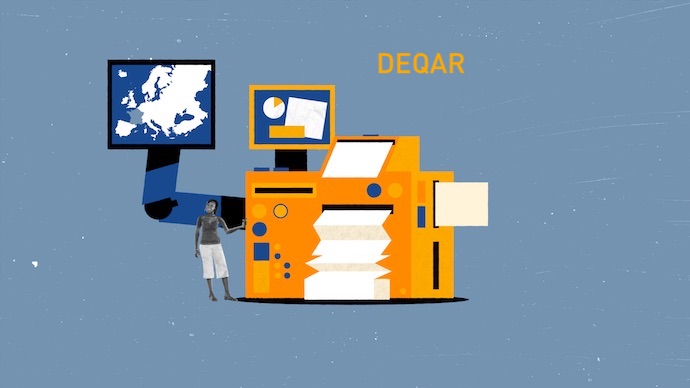
Launch of new DEQAR API
Following the expansion of DEQAR with information on certified micro-credentials and other providers, EQAR launched the new version of the Application Programming Interface (API) today.
The main changes for agencies uploading their reports in DEQAR focus on simplifying the process and enhancing efficiency in line with the system’s recent expansion, with updates reflected in the API, webform, and CSV formats.
To prepare and inform EQAR registered agencies on the planned changes, EQAR organised a webinar in December 2024. Agencies had the opportunity to ask questions and discuss potential challenges. In total, 73 participants from 45 EQAR-registered QA agencies attended the webinar.
After the webinar, two phases of testing were implemented between January 15 and March 25. Although the new API has now been launched officially, the old version will still be operational until the end of 2025. This will give time to the agencies to make their processes compatible with the updates and implement the necessary changes. The old version of the API will be discontinued in 2026.
The changes aim to streamline the report publication process and improve the overall experience for agencies, as is shown in the table below.
| Change | Benefit |
|---|---|
| The introduction of mandatory fields for degree outcome and qualification level. | This will ensure that all programmes/micro-credentials are formally classified systematically according to type and level. |
| Simplified report management process via API, with clear distinctions between creating (POST) and updating (PUT) reports to prevent errors. | The separation of report creation and update processes enhances clarity, prevents errors, improves stability, and facilitates better synchronisation, resulting in a more efficient and user-friendly experience. |
| Agencies can now create/update only one report per request via the API. | This possibility improves stability and reduces the risk of errors, leading to a more reliable and efficient submission process. |
| Agencies can now link a single report to multiple activities. | This option will avoid the duplication of reports. |
| File uploads will now allow submissions as URLs or Base64-encoded strings. | These options will mean a greater flexibility for agencies. |
| The system will notify agencies of potential duplicate reports through warning emails. | Advanced notification of duplications will improve the overall experience and save time. |
| Identical activities implemented by several registered agencies (e.g. European Approach for QA of Joint Programmes, System Accreditation in Germany, etc) are grouped into an activity group. DEQAR assigns IDs to each group, which can be used to identify the activity of a report. | These activity groups will improve data management and enhance flexibility. |
| DEQAR now supports reports linked to one or more organisations acting as platforms in addition to the education provider(s). While the education provider is responsible for the educational content, the platform offers the technical or organisational framework necessary for delivering that education—such as an e-learning platform or a Learning Management System (LMS). | This change ensures that the roles of both education providers and platforms are clearly defined. |